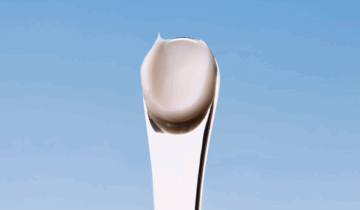Do any of these sound familiar: gastrointestinal issues, mood changes, weight changes, skin problems, sensitivity to temperature changes, vision changes, hair thinning or hair loss, memory problems? Well maybe you should check your thyroid! Even when diagnosed patients often do not fully understand the disorder that they are suffering from. Let me help to clarify.
It is estimated that 200 million people worldwide have some form of thyroid disease – and in Canada recent studies indicate that 1 in 10 Canadians suffer from one type or another thyroid condition…and up to 50 percent are undiagnosed! There are many types of thyroid disease, including: hypo and hyperthyroidism, iodine deficiency disorders, Hashimoto’s thyroiditis, and thyroid cancer.
With age, our metabolism changes, and inevitably we gain weight… is that premenopause, thyroid or simply COVID? Women coming to see me these days are really confused and need to know if their body is really changing or if it’s simply a consequence of aging/a more sedentary lifestyle.
Well, I can tell you this: Hypothyroidism is five to eight times more common in women than men, and interestingly more common in women with small body size at birth and during childhood.
Physical examination may include goiter (a lump on your neck), a slower heart rate, hypertension, and delayed tendon reflexes. We can also send you for blood tests to reveal your levels…however:
Primary hypothyroidism (95% of the cases) is characterized by a high serum thyroid-stimulating hormone (TSH) concentration and a low serum free thyroxine (T4) concentration, and the more common cause is Hashimoto’s thyroiditis.
But what is Hashimoto’s thyroiditis? it’s a Chronic autoimmune disease, meaning that your body creates antibodies against your own thyroid (called anti-TPO). The two major forms of the disorder are goitrous autoimmune thyroiditis (big thyroid) and atrophic autoimmune thyroiditis (small thyroid).
Subclinical hypothyroidism is defined biochemically as a normal free T4 concentration in the presence of an elevated TSH concentration. But wait: nowadays there is a huuuuge controversy over the appropriate upper limit of normal for serum TSH. Some experts have suggested that the true upper limit is only 2.5 or 3 mU/L in healthy individuals without thyroid disease. And do you know how many women have these levels, suffer from all those symptoms but are not treated by their Dr?? ALOT.
Hyperthyroidism: contrary to hypothyroidism, symptoms characteristically include anxiety, emotional lability, weakness, tremor, palpitations, heat intolerance, increased perspiration, and weight loss despite a normal or increased appetite. All patients with primary hyperthyroidism have a low TSH and high T3 and T4.
CLINICAL MANIFESTATIONS OF HYPOTHYROIDISM
- A generalized slowing of metabolic processes. This can lead to abnormalities such as fatigue, slow movement and slow speech, cold intolerance, constipation, weight gain (but not morbid obesity).
- Hair may be coarse, hair loss is common, and the nails become brittle.
- Fatigue, shortness of breath on exertion, rhinitis, and decreased exercise capacity may result from impaired respiratory function, as well as cardiovascular disease.
- Hypercholesterolemia, which is caused by a decrease in the rate of cholesterol metabolism.
- Decreased gut motility results in constipation, one of the most common complaints of patients with hypothyroidism. When euthyroid patients who already have constipation become hypothyroid, their constipation worsens. Small intestinal bacterial overgrowth (an entity that is not very known but probably more common than we thought) may also contribute to gastrointestinal symptoms.
- Musculoskeletal symptoms — Muscle involvement in adults with hypothyroidism is common. Symptoms may include weakness, cramps, and myalgias. Joint pains, aches, and stiffness may also occur in patients with hypothyroidism, although they are not a common presentation.
- Reproductive abnormalities— Women with hypothyroidism may have abnormal bleeding, either less (oligo- or amenorrhea) or more (menorrhagia).
These menstrual changes result in decreased fertility, and if pregnancy does occur, there is an increased likelihood for early abortion. In fertility clinics, thyroid hormone replacement in patients with subclinical hypothyroidism, improved pregnancy outcomes, as live birth rate and miscarriage rate.
What about fertility impacts in men?
Here again, it plays a role. Decreased libido, erectile dysfunction, and delayed ejaculation are found in 64 percent of hypothyroid men. In one report, sperm morphology was abnormal in 64% of hypothyroid men before treatment and 24% after T4 therapy.
So, do all of those symptoms sound familiar to you?? If you read a lil on my premenopausal/menopausal previous articles you might already have realized the similarities… Are you surprised if I tell you that hormonal imbalances commonly are present simultaneously?
So now, let’s say you are lucky enough to explain all of those symptoms to your doctor and he decides to do a thyroid screening… will the doctor believe your symptoms might be related to this, even if your lab results are « in the normal »? And is there really a standard normal, or there is multiple chains of reactions that can explain why someone could be more sensitive/impaired by their thyroid dysfunction?
So what should we do? Treat the lab tests and ignore the patient? Or treat the patient? I do think we under-treat and under diagnosed thyroid dysfunction, because we doctors rely too much on blood labs to feel “secure”. My take on this: We should listen more to our patients’ symptoms.
How do we treat a thyroid disorder?
FIRST, let’s review the STANDARD REPLACEMENT THERAPY
You probably already heard about synthroid, or levothyroxine (T4). It is commonly the treatment of choice for hypothyroidism. To be active, T4 needs to be deiodinated in peripheral tissues to form T3, the active thyroid hormone. 80% of T3 is produced from T4 in peripheral tissues; 20% by thyroid itself. But still, when our thyroid starts to slow down we don’t take that into consideration (it logically doesn’t only produce less T4, but less T3).
Well, although generally effective, not all patients will improve with T4 therapy alone!
COMBINATION T4 AND T3 THERAPY
Is there a role for T3? — For the vast majority of patients with hypothyroidism, it is suggested not using combination T4-T3 therapy.
But, there is now controversy as to whether T4 replacement alone is enough.
Moreover, some hypothyroid patients remain symptomatic in spite of taking synthroid and normal TSH. The psychological well-being is the more common symptom caused by a lack of T3; psychiatrists have been prescribing T3 for depression symptoms for ages!
Estrogen therapy — In women receiving T4 therapy, estrogens increase serum thyroxine-binding globulin (TBG) concentrations, as they do in normal women, and may increase the need for T4. Whether younger hypothyroid women receiving oral contraceptives require dose adjustments is uncertain.
As you can see, hormonal imbalances have multiple impacts on a woman’s body, given that hormones play a role in every system, just like oestrogen and progesterone do. We often neglect to look at the potential symptoms and often just look at the labs; in this case we may miss a big part of the problem. Guidelines are made to guide practitioners, but it should not dictate blindly our conduct and prevail patients’ wellbeing.
What about natural « remedies »?
Well, good habits are always beneficial for your body. But if you have severe symptoms, these may not be enough. Poor diet, lack of nutrients (especially iodine) and stress are all enemies of your hormonal balance.
Selenium
According to the National Institutes of Health (NIH), selenium is an element that plays a part in thyroid hormone metabolism.
Many foods contain selenium, including:
- tuna
- turkey
- Brazil nuts
- grass-fed beef
Vitamin B-12
Vit B12 can help with the tiredness thyroid disease can cause. The disease also affects your vitamin B1 levels. You can add more B vitamins to your diet with the following foods:
- peas and beans
- asparagus
- sesame seeds
- tuna
- cheese
- milk
- eggs
Sugar-free diet
Sugar and processed foods can lead to increased inflammation in the body. Unhealthy habits in general do the same!
Inflammation can slow down the conversion of T4 to T3. This can make your symptoms and thyroid disease worsen.
Signing off,

http://drgabriellelandry.com/
Read more from Dre Landy.
If you have any questions for Dre. Gabrielle Landry, feel free to leave them in the comments below, or can contact her clinic Elna Clinique.
Feature image via Pinterest





 No products in the cart.
No products in the cart.